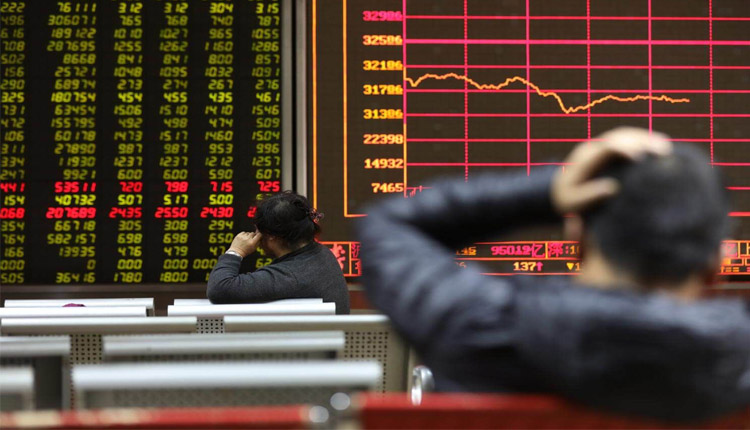China stocks ended higher on Monday, reversing all of their early plunge triggered by the coronavirus outbreak, as policymakers ramped up support for the economy and companies that have been hit by a slump in sales and activity.
At the close, the Shanghai Composite index was up 2.3 per cent at 2,983.62, marking its largest daily percentage gain since last June.
The Shanghai Composite, CSI 300 and SSE 50 indexes all rose about 2% Monday to finish above their closing levels on Jan. 23, the last trading day before a Lunar New Year break that saw a surge in virus infections. The market plunged on Feb. 3 as Chinese markets reopened to a health crisis that paralyzed most of the world’s second-largest economy. Those indexes remains well below their highest closes for the year.
To cushion the blow, China’s government has pumped cash into the financial system, trimmed money-market rates and offered targeted tax cuts. Beijing will also allow local governments to sell another 848 billion yuan ($121 billion) of debt before March, as authorities seek to offset the economic shock of the coronavirus. China said Sunday it will enact more efficient stimulus measures despite a widening fiscal gap, including lower corporate taxes.
“More stimulus policies are highly expected and an excess of capital that cannot be immediately absorbed by the real economy is expected to flow into the equity market, further lifting risk appetite,” said Yang Wei, a fund manager at Longwin Investment Management Co.
While the full scope of the epidemic and its economic impact remain unclear, some investors are starting to look past worst-case scenarios.
The smaller-cap ChiNext Index had already reversed its post-holiday slide and continued to power higher. It topped the 2,100-point level Friday for the first time since December 2016 and led Monday’s gains with a fresh 3.7% jump.
China’s stocks regulator said Friday that it would ease some rules for firms seeking to raise extra capital through share placements, including shortening lockup periods. The rules would benefit small caps. Companies planning placements and brokerages shined, with Huatai Securities Co. and Haitong Securities Co. both jumping about 6%.
Also outperforming were Chinese automakers, after President Xi Jinping called for encouraging vehicle purchases as part of efforts to help the economy. Chongqing Changan Automobile Co. soared by the 10% daily limit, and Great Wall Motor Co. advanced 8.7%.


